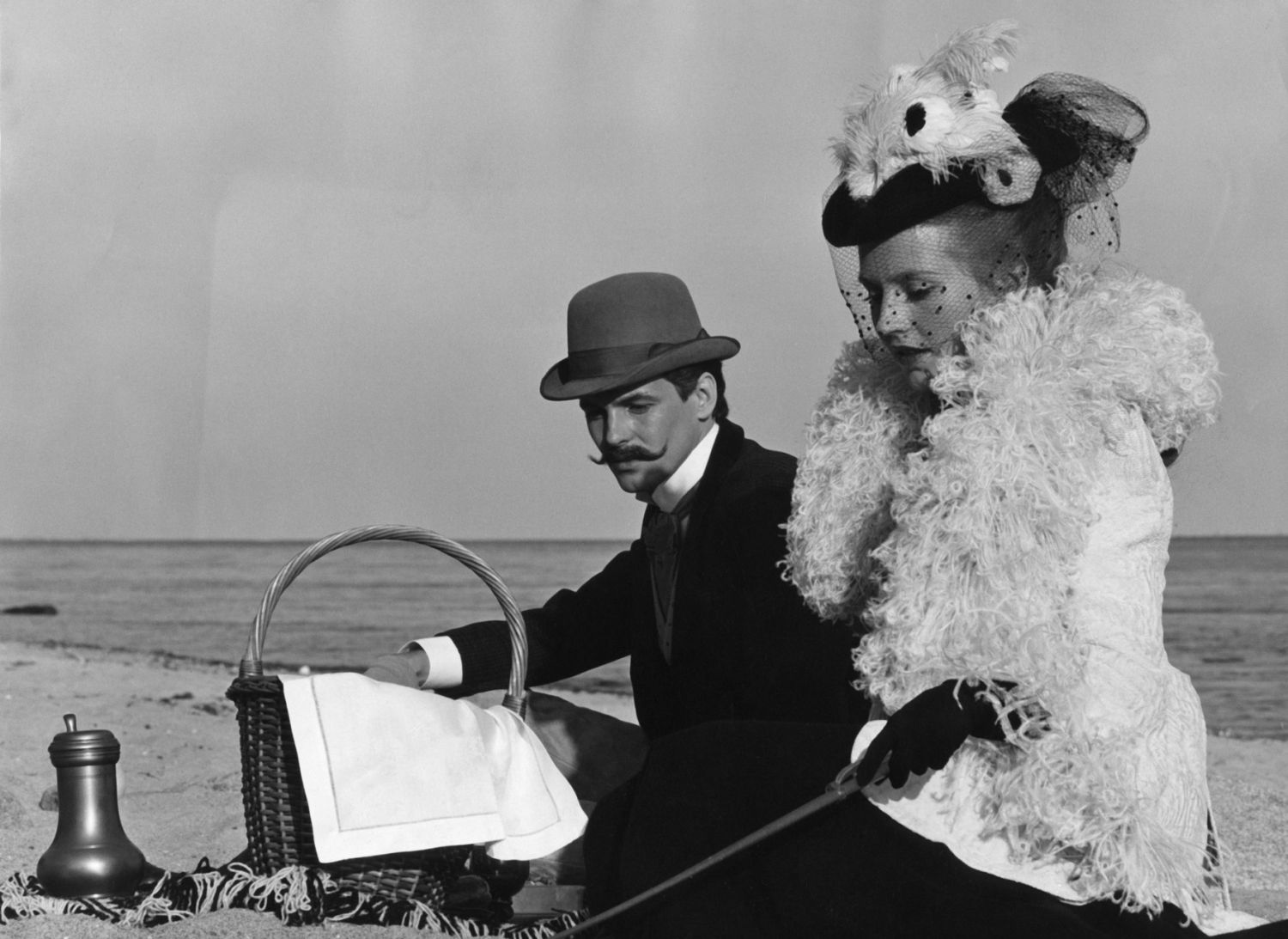Fontane’s take on adultery in Effi Briest is a long, long sad story hinging on a beach-picnic-love affair. At first, it’s a recreational outing for Effi Briest and a friend, Major von Crampas. But soon, the recreation becomes a cover for lust. Though Briest and Crampas are discrete, long after the affair has ended, Briest is found out. Baron Instetten challenges Crampas to a duel of honor and kills him. Afterward, he rejects Effi, who returns to her parents and dies of a wasting illness.
At their first picnic, Briest and Crampas are socially correct. Outwardly, Briest is a model of discretion; inwardly, she is seething with passion. It does not matter to her that Crampas is married, a womanizer, and a cad. Her married life is dull, her husband stiff, and she needs some excitement.
Food and drink are inconsequential. It’s only at the first picnic that Fontane provides a proper picnic: “They had come from the beach to a bench half open under the dunes, with an extremely primitive table in front of it, two posts with a board above them. Kruse, who had ridden ahead, had already served here; Tea rolls and cold cuts from cold roasts, with red wine, and next to the bottle two pretty, delicate drinking glasses, small and with a gold rim, as you can buy them in seaside resorts or bring them back from glassworks as a souvenir.”
Effi Briest has been adapted for film five times since 1939, most recently by Rainer Werner Fassbinder (1974) and Hermine Huntgeburth (2009). Of these, Fassbinder is most accurate to Fontane. His characterization of Briest is respectful, while Huntgeburth’s contemporary take on Briest is that she’s passionate and eager to bare her breasts for a roll in the hay in an old barn.
Featured image: Fassbinder’s picnic. Effi Briest (Hannah Schygulla) and Major von Crampas (Ulli Lommel) are on the beach at Kessin, a fictional town on the Baltic.
See Theodor Fontane. Effi Briest (1896). Translated by Hugh Rorrison and Helen Chambers. New York: Penguin, 2001; Rainer Werner Fassbinder. Effi Briest (1975). Screenplay by Rainer Werner Fassbinder based on Theodor Fontane’s novel; Hermine Huntgeburth. Effie Briest ( 2009). Screenplay by Volker Einrauch based on Fontane’s novel (1896)

